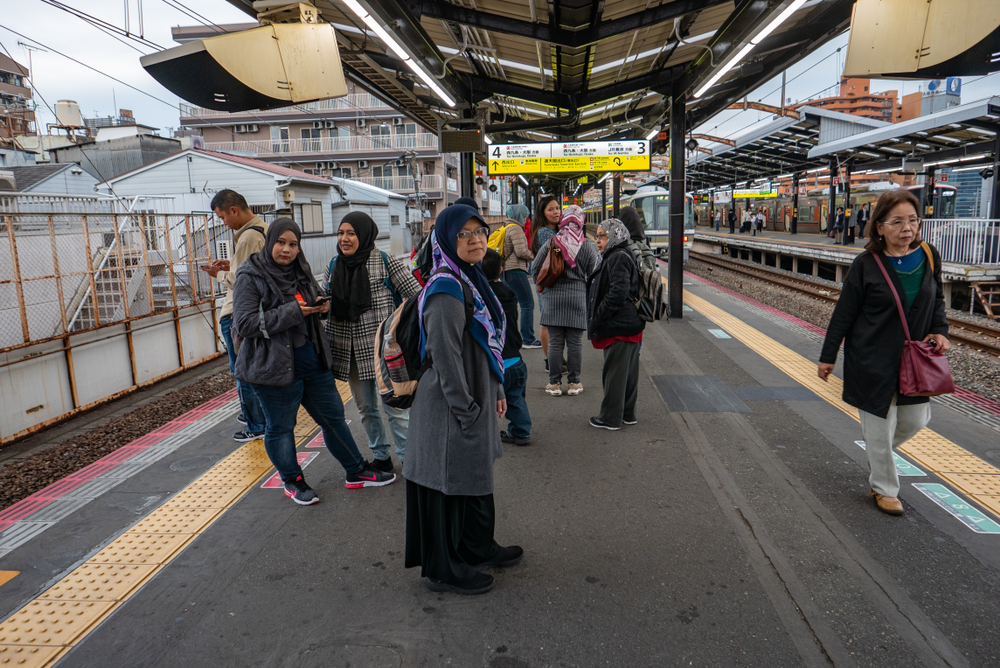Tourism bodies attend world’s first halal travel academy to better understand Muslim travellers
*Corrects name in Para 13 from Sinya Yokoyama to Shinya Yokoyama
It’s the centenary of the birth of Nelson Mandela and South Africa Tourism is taking the year-long occasion to attract Muslim travellers to the ‘Rainbow Nation’. Sadiq Dindar, the government body’s marketing and promotions manager for the Middle East, believes South Africans are living Mandela’s legacy of inclusion and “opening up [their] doors to travellers from all different faiths and cultures”.
The official believes his country’s wide network of mosques and strong halal food offering will appeal to Muslim travellers but he needs to better gauge which other religious and cultural requirements will add value for incoming tourists from different Islamic countries.
“We are already well-positioned in terms of our infrastructure, so we don’t need to go in and waste a lot of money. Instead, we are realising that by taking this infrastructure and developing it further and training the trade, it gives us a better product for the Muslim market,” Dindar told Salaam Gateway.
To find ways to improve its services in this regard, in July Dindar attended an executive education programme organised by CrescentRating, a Singapore-based halal travel consultancy whose new training academy seeks to “provide a holistic education platform for the entire industry,” according to its chief executive, Fazal Bahardeen.
PROGRAMME
“Our inaugural, four-day residence programme for senior management shared with them strategies that they can use to immerse themselves in Islamic tourism. It’s akin to your typical masterclass or executive MBA programme,” Bahardeen told Salaam Gateway.
“It’s the first such programme that we are aware of on the market.”
CrescentRating Academy also offers two other levels of training, comprising basic-level video schooling which can be completed at home or in the office, and a client-based programme that is delivered to staff on site.
“For our executive programme, we cover in-depth the Muslim traveller’s basic requirements, and what they require in different regions,” Bahardeen said. “We look at the socioeconomic cultural aspects of the Muslim outbound market, the market environment and political barriers.
“Based on the feedback we received, our participants appreciated the detail we went into for each of the segments of the travel market,” said Bahardeen.
“They were able to understand the wide range of Muslim traveller profiles, like how a Middle Eastern visitor is very different to a Malaysian family that is going to the same destination. These can differ quite a lot,” he added.
These nuances are what’s valuable for South Africa Tourism. Apart from a focus on the Middle East, Dindar is also responsible for marketing his destination in Turkey, which has also been identified as a high-growth outbound nation, while his colleagues in the organisation’s Mumbai office have been charged with developing South Africa’s profile in Southeast Asian countries.
“Malaysia, Singapore, Indonesia, these regions have also become part of the portfolio under our new marketing investment framework. These, with Turkey and the Middle East, now have dedicated resources that we never had in the past,” he said.
JAPAN RISING
Among other first participants of the halal travel programme was Shinya Yokoyama, co-founder of Food Diversity Japan, which publishes a halal information portal and organises Japan’s biggest halal food trade show.
Like Dindar, Yokoyama is looking at ways to use the promise of enhanced halal services to attract Muslim visitors from the Middle East and other locations—albeit from Japan’s altogether lower standpoint.
Notwithstanding, Yokoyama believes that Japan has the potential to welcome increasing numbers of Muslims, but to capitalise on this opportunity, businesses and tourism authorities must first understand fully their tastes and requirements.
“Of all the countries targeting Muslim travellers, Japan may have the most potential to market itself to the world. So far, we haven’t developed our tourism industry so much in this way, but now is the chance to try to attract that market,” Yokoyama told Salaam Gateway.
DIVERSITY, INCLUSION
For the halal travel sector to develop properly in Japan, Yokoyama believes that industry leaders must understand they need to provide a diversified offering that doesn’t put Muslim travellers on a pedestal—one of the key lessons the CrescentRating Academy seeks to instil.
“Muslim travellers want to be treated inclusively,” he said. “Of course we have to understand their needs and the hospitality services they require, but especially the younger segment do not want to be treated differently,” said Yokoyama.
“Japan isn’t so familiar with Islam, so we have to study what is required by Islam and halal so we can create new opportunities for hospitality services from Muslim travellers.”
This is echoed by Dindar, who stresses that millennial Muslims in particular like to feel part of the mainstream. This 18-36 age group is projected to spend more than $100 billion annually on travel by 2025, making it one of the world’s fastest-growing traveller markets, according to a report by Mastercard and CrescentRating-owned HalalTrip.
“They have access to all the digital platforms, they have all the insights and understanding of how to travel and where to travel. Through training you can get an understanding of what you need to do to ensure that you attract all these travellers,” said Dindar.
“But you need to integrate the various cultures and not only the needs of the Muslim traveller so you’re not just marketing to one segment at the expense of others. It’s also key that you maintain what your key source markets are so your travellers are still getting the same products and services that they have been coming for before.”
(Reporting by Richard Whitehead; Editing by Emmy Abdul Alim [email protected])
Our Standards: The Thomson Reuters Trust Principles
© SalaamGateway.com 2018 All Rights Reserved
